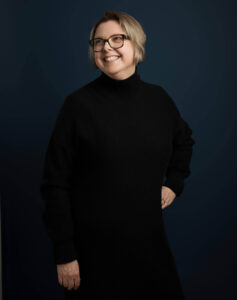Often, across the far-and-wide world of the internet, we come across hacks to avoid procrastination and tips to boost productivity. But, has anyone stopped to acknowledge the plain boredom that can hit you during a PhD?
It’s been three or four years since your thesis topic has been finalized and each day is focused on bringing out the unique facets of the topic at hand. After a few years, we might start to think that there is nothing more to elicit from the topic (even though there’s always more to learn). And then, existential dread starts forming its dark rainy cloud over our heads.
We see our colleagues graduating and throwing their caps high up in the air, celebrating what understandably may have been the journey of their lifetimes. Then it hits. What about me? What about my thesis? When is my defence? When will I graduate?
Staring at that blank Word document in front of us fills us with the realization that it is still a long road ahead. What started as gleaming eyes looking at that acceptance email soon turned into empty eyes longing for some relief from the PhD grind.
Think about it: the situation becomes such that you would do anything else but write your thesis. You have gone through those same old concepts countless times in your head with no reprieve.
Boredom or Burnout?
That listless feeling that you experience may just be the body’s signal to take a short break. This may be all that one needs. On the other hand, boredom can occur when one feels overworked about the topic and even a vacation can’t seem to be a proper remedy. It’s important to realise if we might be burnt out from all the work that goes into preparing a thesis, and a longer break may be necessary for your health and well-being.
But try these top tricks to see if it helps you get back on track:
• Network, network, network! Meeting people who are in the same boat as you will re-ignite your interest in your academic journey.
• Listen to podcasts that go into detail about your topic, and perhaps even participate in one as well!
• Find an interdisciplinary niche to add more interest and round out your thesis arguments.
A Solution: Social Media Cleanse
When we start comparing our lives based on what we see online, it can be very detrimental. When you feel inadequate after seeing how successful other scholars on social media have been, it’s important to remember that you have survived a hundred per cent of all your worst days so far. What makes you think that you won’t do so in the future as well? While perhaps I sound like a cheesy Instagram quote here, I thought it was important to reiterate.
What we see on social media platforms is not the whole truth. Very often, we see just a kernel of what is happening in others’ lives and compare it to our own. Thus starts the pity party and longing glances which lead to a complete disinterest in our own lives. If this is the case, taking a break from social media is the best way to move forward. A good few weeks or even months away from social media can help us assess our own goals and dreams as well as plan ahead on how to proceed further.
Remember: It's Not a Competition
Instead of looking at that ticking clock, immerse yourself in what you do. Forget the naysayers and your colleagues who have moved on to industry roles. If you want to pursue a future in academia, then that is your dream to claim. You are here right now, and at this moment, all you can do is decide what one small step you will take to move forward with your thesis You need to chip at it one day at a time and you will see it come to fruition eventually.
One of my colleagues called their thesis a proverbial academic baby and I have never heard anyone describe a PhD more accurately. It is a true labour of love from its inception up to the final defence. You care for it every day and eventually defend it at all costs. It may be true that no one apart from your research committee will ever read it, but what we must remember is that it showcases your work over a good few years of your life. And that is certainly worth celebrating.






